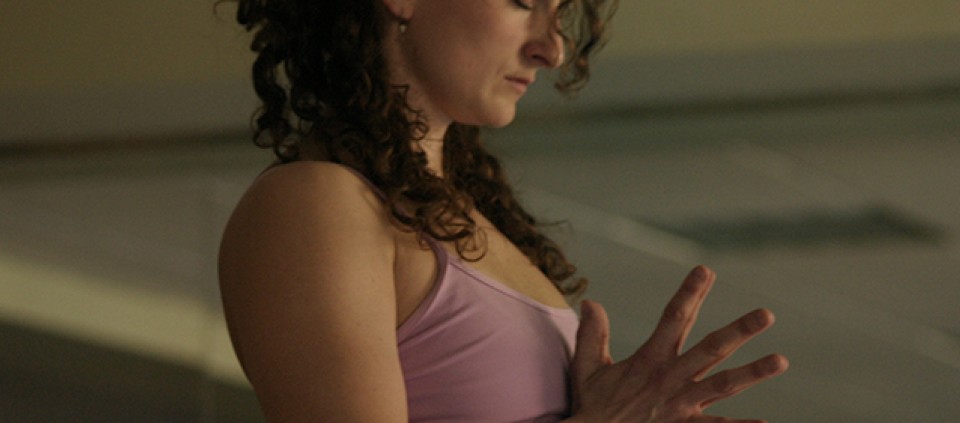Karma Yoga: What We Practice, We Become

by Janet Arnold-Grych
We all have the power to accept and offer kindness—probably much more than we typically allow ourselves. And kindness, received or given freely, is amazingly powerful. A single act can change the cast of an entire day. Strung together, acts of kindness, particularly selfless acts, can dramatically change us.
Our universal connection to others multiplies our ability—and our responsibility—to pass on kindness and compassion. It’s easy to see kindness in the big things—the community project we work on, the sick friend we go out of our way to visit. And these are wonderful things. But every day we stand in a field of small opportunities—to simply smile, lend patience, listen—and turn a blind eye. I know there are days my gaze is far too inward. Not surprisingly, those are often the days I end up feeling more unsettled or frenetic. When I tune into those opportunities to extend kindness to others, I find a picture that is bigger than just me, and I am better able to inhabit the whole of the present moment.
When selfless kindness—kindness without expectation for reward—becomes our driver, we practice karma yoga. Aruni Nan Futuronsky, a life coach and faculty member at Kripalu, explains: “Karma yoga is an ancient practice of selfless service, or seva, of taking action and letting go of the results of the actions.” This is not easy. Deep down there are times when we all perform acts of kindness because of how we believe they will make us feel. Our acts confirm that we are good people and give us a warm feeling. Even if we don’t expect to receive anything tangible in return, when our act is done with attachment to the outcome, it binds us to the ego, and that can be a vicious cycle.
Years ago, Aruni ran the Kripalu Kitchen, where she and her team practiced living the mantra, “It’s not about lunch.” “Of course, it was about lunch—hundreds of hungry guests were waiting,” says Aruni. “But more importantly, it was about the practice of being present in the moment, putting our personal needs and agenda to the side, and showing up for the service. Be it cutting tofu, washing dishes, vacuuming rugs, or teaching workshops, to be grounded in selfless service is a freedom for the practitioner and a gift to the receiver.”
It’s amazing how closely the two strings are tied—our growth and our compassionate, unattached service to others. Ancient yogic texts, as well as our own personal evidence, show us that when actions are done with intention but not expectation, we become lighter. The more we practice this, the more we actually become it—on every level. Aruni explains, “The loving discipline of metta meditation, the cultivation of kindness, actually changes the chemistry in the brain. There is powerful brain science, through the use of brain scans and EKGs, that documents the brain’s change as it enters the flow state. The yogis were right.”
When we feel happy, it’s easy to extend kindness to others. But life is not one smooth step after another. We all stumble. We all get rained on. To extend kindness to others, particularly unattached kindness, Aruni feels that we need to cultivate the inner reserves to be kind to and patient with ourselves. “The word Kripalu is the verb form of compassion,” says Aruni. “To be compassionate to ourselves has to be the foundation of our relationship to all others. It is essential that we give ourselves time unplugged. A few minutes of breath and meditation a day changes the chemistry of the brain. Sitting, watching the sunrise, walking in the park or the woods, hugging your dog—returning to that flow state, is essential for our physical, emotional, and spiritual health.”
When we bring attention to extending kindness for kindness’ sake, we realize the abundance of opportunities just waiting to be picked. Our actions then become not just something to do, but a more expansive way to live. As Aruni explains, “To serve another, to be useful, to contribute with loving-kindness, can become an anchor, a center in one’s life, upon which return is both guaranteed and delicious.”
Find out about programs with Aruni Nan Futuronsky at Kripalu.
Janet Arnold-Grych is a yoga teacher and writer whose work has been published in Elephant Journal, Huffington Post, Third Coast Digest, and other outlets.
© Kripalu Center for Yoga & Health. All rights reserved. To request permission to reprint, please email editor@kripalu.org.